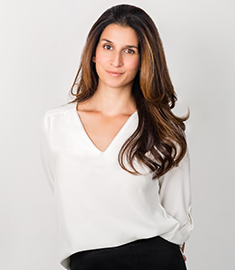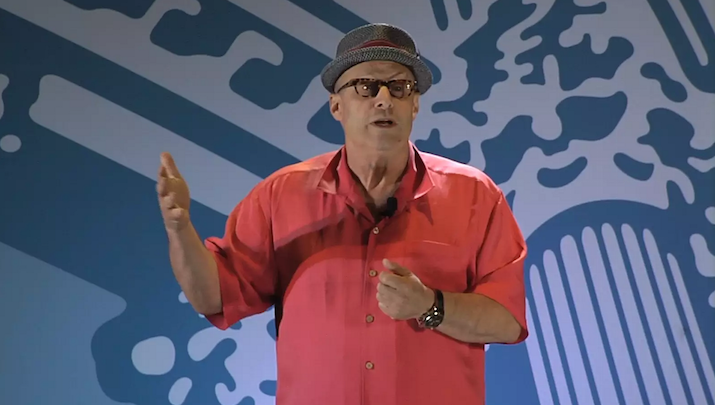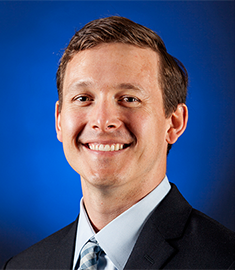What Distinguishes A Great Place to Work
What separates good workplaces from great ones? After 30 years of analyzing happy and efficient companies, Robert Levering, co-founder of Great Place to Work, has a few ideas.
The common denominator, he says, is trust. The three levels of trust for employees are: credibility of management, what does management think of me and knowing there is a level playing field. Evergreen leaders can use Levering’s insights to create an environment where employees are engaged, satisfied and productive.
Why We Gave 48 Percent of Harpoon to Our Employees
Evergreen companies have a special capacity to do tremendous good. At a time when a lot of people look around and feel like the system is rigged — the rich are getting richer, CEOs are paid extreme amounts, private equity firms are taking over — Evergreen companies can stand up and say: There is another way to do business. Greed should not be the driving force. We can all do well by sharing the load and the rewards.
At Harpoon Brewery, this is more than just a nice ideal — it’s how we operate.
Two years ago, my founding partner and I reached a critical impasse. He wanted to sell our 28-year-old Boston-based brewery to either a strategic buyer or a private equity firm. I did not. Despite the fact that there were a number of potential buyers out there willing to set us up financially for life, I couldn’t do it. I had a great deal of pride in what we had built and so much affection for the people who helped us along the way. I also have a decent amount of suspicion of some private equity folks, many of whom are out to make a quick buck at the expense of everyone else involved. Instead of selling out, I decided to sell in. To ensure that we would never be taken over by private equity, I thought we should implement an employee stock ownership plan (ESOP), which would give ownership of the company to our employees.
My partner still wanted to sell, though, and we couldn’t reach a resolution. Between the two of us, we had 90 percent of the company shares — 45 percent each. We decided to take our dilemma to the six other shareholders and let them be "the jury." On March 7, 2014, they voted 6 to 0 for the ESOP. We bought out my partner, and some shares from five of those six shareholders and put 48 percent of Harpoon’s shares into an ESOP trust.
One week after the deal closed, I held a meeting with the approximately 200 full-time Harpoon employees and told them that I wanted them to meet the new owners of a minority stake of Harpoon. They glanced at the door, expecting Budweiser or MillerCoors to walk in. I told them to all stand up and look at each other as they were all the new owners. People started cheering and crying. It was so much fun.
For the past two years, getting the ESOP up and running has been a great challenge. We’ve had to ask people to take their blinders off a bit and really recognize that their efforts have an effect on everyone’s financial well-being and security. We launched a committee of 12 employees to manage ESOP education and activities.
The activities are mostly social on a monthly basis, and annually we have an event to present statements of distribution (share price announcement). The education aspect is ongoing for both new employees and existing ones. We have an owners’-club meeting once a month. We have Friday sessions to talk about ESOP issues and to provide an opportunity for employees to talk about ideas. For instance, if a guy on the bottling line has an idea to save a penny a case, we build from there. A penny a case can quickly turn into $90,000 — and that’s money that will line all of our pockets. As owners, employees participate in Harpoon’s profits.
Our unified vision is to create a brand of enduring value. We now have a culture that helps employees achieve financial security. This is not your normal business. Just going through the motions and punching the clock doesn’t cut it here. We want our employees and potential employees (all new full-time employees become participants in the ESOP after working 1,000 hours) to think this is an attractive way to make a living and to look at it as more than just coming to a job every day.
There is too much greed in our society. I feel strongly that an Evergreen company can prove there is a way capitalism can work for everyone — not just the bankers and private equity firms. My shares decreased in value by two-thirds when this transaction was completed. But I am a fervent believer in my employees, and I am enjoying this cool, supportive culture we have created.
We have found that there is no better way to earn a living than running our own Evergreen business. Together.
Daniel Kenary is the Co-Founder and CEO of Harpoon Brewery.
How An Evergreen Company Passed The Torch
An Evergreen business eventually comes with a unique challenge: smoothly transferring control and ownership. At 75, Andrew Kawaja’s father still comes to work each day at IFS Industries, the company he founded in 1972. But the senior Kawaja has already successfully completed the leadership transition to his three sons.
Andrew Kawaja explains how his family's enterprise has stayed true to its founding principles and navigated the culture war that he calls inherent in a generational transfer. In his talk, Kawaja details the three core rules his family has followed for a prosperous and harmonious succession.
GROW, BABY, GROW -- IT’S ALL ABOUT THE CONTRIBUTIONS
We at Torani consider ourselves a 90-year-old startup. We have grown over 20 percent a year on average for the past 25 years, and have risen from a small San Francisco brand to one recognized in cafes and bars worldwide. Yet … of all the things of which we’re proud, our double-digit growth rates are lower on the list than you might think. That’s a lagging indicator of success. The leading indicator is the growth and development of our people.
With people at the center of how we think about our business, I’d been on the lookout for an alternative to performance reviews. I don’t know if you’ve ever personally experienced a performance review, but I’ve found them a little demoralizing and a waste of time. In fact, my experience of performance reviews is that they inhibit or distract an organization from performing.
After many experiments with tweaks and alternatives to performance reviews, I finally found something that felt really right. “Contribution Management” were the words that Catriona Wiley, now our VP of People & Culture, uttered when she interviewed with us. We were smitten.
Unlike performance reviews, which are judgmental and only look backwards at performance, Contribution Management is a framework to discuss an individual’s current contribution and potential contribution. Most importantly, it changes the dynamic between the manager and the team member. Whereas performance reviews are “done to you,” contribution discussions are owned and led by the team member.
This is a major shift in mindset. Rather than being in a judgmental role, the manager shifts to the role of a coach who is helping the team member increase their contribution and continue their development and growth. This sounds easy but it’s taken two years of practice (really) for us to get the hang of this.
Here’s how it’s worked for us. We decided to take baby steps over two years to implement the changes. We began by focusing on the year-end recap. We created simple documentation to help frame a conversation that could be led by the team member. Then we trained everyone in the company to be prepared for a team member led conversation. This was most challenging for managers. Rather than making statements about a person’s performance, they were now asking great questions and providing feedback. At the close of the session the individual and manager agreed on the team member’s level of contribution: Did they do great? Were they above and beyond? Or were they behind the pace? And what did they learn over the past year that they would apply going forward?
That leads us to the next step: A separate conversation focused on the future, which includes goal setting and development planning. In this conversation the manager takes a greater lead by sharing the context of the company’s strategic plan and the department’s plan (we have these simplified to one page each). The manager then invites the team member to discuss how they’ll contribute to the plans and they agree on the team member’s personal goals. They also identify what the team member wants to be doing differently and to learn over the next 12-18 months, and agree on a development plan.
Finally, we’ve made Contribution Management a year-round process as we’ve incorporated it into our DNA. Several times a year, team members check in with their managers to discuss their progress and stay on track. By focusing on supporting individuals, we’re building a stronger, happier workplace.
Every one of our 170 team members participates. I do my check-ins with the board — and I’ve found it to be an engaging and motivating process. Looking forward to what people can do, instead of looking backward to what they have done, is a respectful way to discuss work and to get people feeling responsible for their own actions. It has energized individuals and the company as a whole.
We’re seeing tangible results from just two years of practice. Besides our team members feeling much more engaged, we have seen a significant increase in internal applications for positions. In Q1 of this year, 8 out of 17 positions were hired from within. In the past, any internal promotion tended to come from a manager approaching an individual; these days, individuals proactively consider and apply for roles.
Contribution Management is the antithesis of top-down management. It is all about development and building across the whole organization. What I love most is how this has encouraged Torani people, whether on the bottling line or in the C-suite, to have conversations with their managers about how they can grow. It has created a language for us to discuss the tricky things, like compensation, with trust and transparency. And it’s opened up the conversation beyond the office — we are expanding to ask people how Torani can help them get a higher education or how they can plan for buying a home.
This is one element on our path toward becoming an everyday powerful force for good in the way we work.
Melanie Dulbecco is the CEO of Torani.
Cartographer Of Opportunity
Because Evergreen entrepreneurs don't have the promise of a looming exit and payout to attract and retain top talent, they must turn to something else. "That something else, to me, is human nature," says Quest Nutrition co-founder and president Tom Bilyeu. He says that one of the biggest problems business leaders face is a failure to acknowledge human nature and use it to their advantage. "Values and identity drive behavior," says Bilyeu. "Your job is to create, define, explain and get your employees to embody a core set of values." If a company hasn't outlined its values, employees will act in accordance with their own — which opens the door to discord and ineffectualness.
Bilyeu explains how he helps employees pull in the same direction as his company, and why he's more than happy to help poor cultural fits find a job that works better for them.
Our Mentor Program Isn't Perfect But It's Just What We Need
When our company, Balsam Brands, took off like a rocket in 2006, we had to quickly design a business that would last for the long haul. We knew that above everything else, we wanted to create a place where our employees would be happy and fulfilled and would love their jobs. We are not saving the world here — we are selling artificial Christmas trees and home decorations. So we felt this kind of people-first workplace would be critical not only for our company’s success, but for everyone’s personal happiness.
Although I was only 30 years old when I started the company, I had already been in business for a number of years working for McKinsey, a large nonprofit, and running my parents’ manufacturing business in Ohio. I had seen what worked and what didn’t. I knew that happy workplaces are ones that give employees opportunities to grow both professionally and personally.
That’s why we developed our mentor program, which has gone a long way toward ensuring employee growth and happiness. It’s an idea that we encourage all Evergreen companies to adopt.
How does it work? Mentors are separate from managers. Managers oversee work goals and have a say in things like raises and promotions. Mentors are there for support. A mentor is there to listen and offer guidance.
At least once a year, each employee meets with their mentor for what we call a Development Chat (it intentionally is not a review). Armed with feedback from several of the worker’s peers, mentor and mentee discuss how things are going and set some goals for the coming months. If those goals are all business-related, that’s kind of a bummer. We want these discussions to be more holistic, which could include goals like going to the gym more, eating healthier food or taking up a new hobby.
Those are the formal mentor meetings, but mentors are available anytime a worker has a problem or needs a friendly ear or some advice. We hope employees will meet with their mentors three times a year — even if it’s just for coffee — but we don’t force it down anyone’s throat. The whole point of the mentor program is to encourage employee happiness and to make Balsam Brands a place where people love working.
Although we’ve found this system to be incredibly beneficial and a big part of the reason we have such low turnover, I’d be lying if I said it wasn’t time-consuming. Not everyone is a great mentor, so the people who do sign on to the program end up taking on more work because they will often have several mentees. There are people in the company who are giving feedback to between five and 15 employees. To ensure that feedback is valuable and productive, people who are asked to review their peers are expected to be very thoughtful in their responses, which also takes time.
We’ve searched far and wide for a way to redesign this process to make it more efficient. But here’s the thing: Whenever we talk to other companies about this question, they almost always end up wanting to adopt our program. They see how inspired our employees are and they want to try and replicate that in their own company.
Every Evergreen CEO knows that in order to build a 100-year company, you need to put your people first. Although we don’t think our system is perfect, it’s achieved our goal of creating a satisfying, happy workplace. Thanks to our talented team, our company has continued to expand; last year we did $90 million in revenue and were named to Forbes’ Best Small Companies list. The future looks bright for Balsam Brands thanks in part to our mentor program.
Mac Harman is the CEO of Balsam Brands.
There are No Shortcuts on the Evergreen Path
Ed Viesturs has been climbing mountains for almost 40 years. In that time, he has climbed all of the world's 8,000-plus-meter summits — 14 in total — without using oxygen tanks. Viesturs embodies one of the most important elements of an Evergreen entrepreneur: perseverance. It took Viesturs 21 attempts to complete his 14-summit bucket list. For each of those climbs, he vowed not to break the rules that he lives by — no shortcuts, no complacency.
"Life is a series of climbing mountains," he says. "You have to be willing to take the time to have the journey, roll up your sleeves and strive for the summit while making sure to get back down alive." The same could be said of the path of an Evergreen business leader. Viesturs’ advice: Listen to the mountain. Conditions will guide your actions. You have to be acutely aware of them, adjust plans accordingly and avoid forcing action on your timeline instead of what the mountain offers.
What Operating In A War Zone Taught Me About Putting People First
Entrepreneurs know they need grit to persevere through tough times. But nothing could have prepared me, or my entire company, for the perseverance we would need to show when two-thirds of our staff was suddenly engulfed in war zone.
My husband, Kenny Rosenblatt, and I started our gaming company, Arkadium, in 2001 in New York City. We were two determined 25-year-olds, hungry to trade our cushy six-figure salaries for the risks of entrepreneurship. It was a low time for our industry — the bubble had just burst, and I was looked at like a lunatic when I announced that I was going to start a tech company with my (then) boyfriend.
One marriage, three kids and over a decade later, we found ourselves with a multimillion-dollar business. Kenny serves as Arkadium’s president and I am the chief executive. We are known for successful Web and mobile games like Mahjongg Dimensions, Twisty Hollow and Imago. That solitaire game that came preinstalled on your PC that you use to unwind at the end of the day? That’s us.
In addition to our headquarters in New York City, we also had a fully staffed office in Simferopol, in the Crimean Peninsula of Ukraine. We spent close to 10 years growing that office, building relationships and investing in our future there. We even bought an apartment and spent the summers there with our kids. By 2014, our office in Ukraine had grown to over 100 people. Then the war started.
Suddenly an area of the world no one had heard of was front-page news. Tanks rolled through the town square and armed men roamed the streets, putting tremendous stress on our employees as they weighed the safety of leaving their families every day to come to work.
That December, the Obama administration declared sanctions on any U.S. company doing business in Crimea. The penalty was 25 years in prison and a $250,000 fine. Suddenly, in addition to worrying about the safety of our staff in Simferopol — a city we considered a second home — we were worried about the future of our business.
It might seem like this would have been a good time to cut our losses and start fresh with new employees in a safer part of the world, but that never occurred to us. My husband and I had built our company by hand, and our Ukrainian employees are no different to us than our New York staff. Abandoning them was out of the question.
As an Evergreen CEO, I focus my energy on culture and people over making myself a billionaire. I know that by following this path, success is not only inevitable but that it will be truly gratifying.
So instead of folding the Ukraine office, we talked to our employees to find out what they wanted.
While some members of that team wanted to stay because of personal obligations, others were ready to leave and trusted us to do the right thing as we helped them find ways to relocate and pick up the pieces of our business. Ultimately we moved 55 people — and their families — to mainland Russia and opened a new office near Sochi, where our employees were safe and we were no longer subject to U.S. sanctions.
These events, and the decisions we had to make, were extreme. But remarkably, and against all odds, Arkadium is thriving once again. With nearly half our staff gone, we dramatically scaled down our efforts in mobile gaming, an area that had given us minimal success, and returned to what had been the original nerve center of our company: casual Web-based games for publishers like USA Today and CNN.
We had a tremendous year in 2015, growing profit by over 400 percent and adding close to 500 new partners. We even started to grow our new office in Russia, adding 20 new employees.
As the story spread across the tech sector, our reputation grew. There are very few companies our size that have been around as long as we have. Most startups either are bought or fold before they reach our capacity. We are known in our industry as survivors, and the events of 2014 certainly reinforced that reputation.
As a business owner, you have to be a crazy optimist. If you don’t see the light at the end of the tunnel, you won’t survive. But a bigger lesson from this story, for me, is the karmic one. Evergreen CEOs put their people first, and those people notice. As a result, when times get tough or given the chance, those same people will step up in extraordinary ways for you.
Jessica Rovello is the CEO of Arkadium.
VIDEO: You Can Grow Your Own Way
Zingerman's Deli co-founders Paul Saginaw and Ari Weinzweig vowed that the business they started in 1982 would always stand on its own. The Zingerman’s experience could never be replicated. But after 10 years of growth, sales flattened and esprit de corps fizzled. One of the reasons: Good workers didn't have room to advance into leadership.
So Saginaw and Weinzweig crafted a new vision that allowed ambitious employees to become managing partners of independent businesses under the Zingerman's brand. Today, the Zingerman’s Community of Businesses consists of 10 such operations. This arrangement has allowed the company to stay Evergreen and experience steady paced growth.
Our Values Have Kept Us Moving For 148 Years
Building a culture requires a Crock-Pot, not a microwave. You don't post core values on the wall and then move on to the next thing. It's very organic and requires that slow, steady repetition, and over many years it does take shape.
At Betts Company, we’ve had the time to put in that work. We are in our sixth generation of leadership at our 148-year-old company and we’ve come to realize that it’s the values we instill in our company and our employees that will help us stick around for at least another 148 years.
At Betts Company, we “Improve the Way Things Move.” We make springs, mud-flap hangers, fenders and other parts for commercial vehicles and other industries. We started off making springs for horse-drawn carriages, and as modes of transportation have evolved, we’ve evolved with them. At the end of the day, if our team remembers one thing, we want to remember that we exist to “Improve the Way Things Move.” That’s just five words. Hopefully we can all remember five words.
“Improve the Way Things Move” has been our purpose statement for the last three years. Around that time, while I was getting my MBA, I realized we had a wonderful history, but needed something more. As part of a marketing class, we watched the Simon Sinek TED talk "Start With Why," and it inspired me to think about the why of our business, and to find a way to communicate our why for generations to come. I started really looking back through our history and checking in with team members to say: What are the things we believe in? What really is the DNA and the root of where we've been? We've always had values, but before 2013 we never really described them in a plainspoken kind of way.
Our company comprises three different divisions in 11 different locations. We had been growing and expanding organically, but we hadn’t really taken the time to explain why, so the company felt fragmented. With that much reach, you end up with these subcultures that have different interpretations of what the company is about.
So after watching Sinek’s talk, I was inspired to write down the Betts Way with a view toward unifying our company around a common set of values: Respect everyone, aim for excellence, share your passion, work smart, take care, act ethically and communicate.
The values help us stay focused. They create a third perspective if team members are having a healthy debate. If things get a little “cattywampus,” there's always a document we can go back to, which is the Betts Way, to help frame how we should be interacting with each other for the betterment of the company. We can take the emotion out of an emotional situation. This isn't me — this is what the Betts Way says.
It also helps with new recruiting. When we’re recruiting, it’s a two-way street. We’re getting to know somebody and they’re getting to know us. What better way to get to know us than to be able to read the Betts Way and decide if what is written energizes you or scares you? It's either exciting or not. And if it's not, better for us both to understand that very early on in the process, rather than somebody coming on board and realizing our culture is not the right fit.
We want the Betts Way to give our team members permission to be their best selves inside the business and in their homes and communities. We’re hoping it's not just a J-O-B. Work is a big part of life. We want to think about how we’re contributing in our homes and communities, not just the workplace.
Our values also help us move forward together as a company. It gets back to us needing to constantly get a little bit better to have a fighting chance at continuing to grow. We can't be stagnant. We're in tough industries. So if we don't continue to improve and evolve, one day we won't be relevant. Our values keep us focused on improvement. We can’t control the economy but we can certainly control how we run our business.
Bill Betts is the President of Betts Company.


